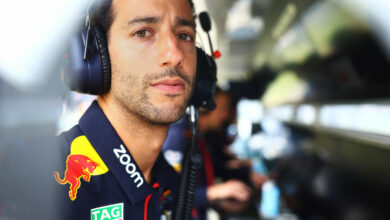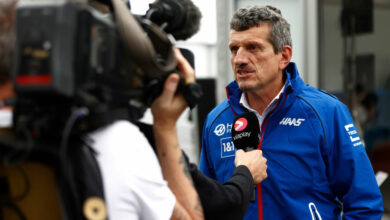Lance Stroll Slams FIA’s Qatar GP Decisions: “A Joke” Amidst Harsh Race Conditions
In a post-race statement, Lance Stroll vehemently criticized the FIA for the penalties imposed during the Qatar Grand Prix, labeling them as “a joke.” His critique highlights the challenging conditions and stringent track limits faced by drivers.
Key Takeaways:
- The Qatar Grand Prix at Losail International Circuit saw tightened track boundaries, especially through Turns 12 to 14, leading to several penalties including two crucial five-second penalties for Stroll.
- Stroll’s penalties, seen as unjust amidst the physically demanding race conditions, pushed him out of the points, fueling his discontent with the FIA’s decision-making.
- Drivers, including Stroll and Logan Sargeant of Williams, endured extreme physical strain, with Stroll battling near-fainting conditions and Sargeant being forced to retire due to the heat.

In a recent development at the Qatar Grand Prix, Lance Stroll has voiced strong objections against the FIA’s enforcement of track limits, an issue that has been a recurring source of controversy in Formula 1. The Losail International Circuit, known for its challenging layout, became the epicenter of debate this weekend as drivers struggled with the redefined track boundaries, specifically designed to protect the tyres from damage over harsh kerbs.
The race saw a series of penalties being imposed on various drivers, with Stroll receiving two consequential five-second penalties. These penalties were particularly impactful, as they not only cost Stroll valuable points but also brought to light the severe physical demands of the race. The Aston Martin driver expressed his frustration openly, questioning the rationale behind the penalties and the FIA’s understanding of modern Formula 1 racing.
Stroll, in a candid conversation with the press, stated, “It’s a joke that they’re giving penalties for this. They don’t understand what Formula 1 is these days. What they’re putting us through, we’re given these track limit penalties and they’re making the track narrower and they’re saying we can’t drive over the kerbs because the tyres are failing if we do.”
The issue of track limits has been a persistent topic in the sport, with instances from previous races like in Austria being cited by Stroll. He stressed the minor nature of the infractions and the negligible advantage they provide, especially when considered against the backdrop of the intense physical and mental demands placed on drivers. His comments underline the growing disconnect between drivers’ experiences on the track and the regulatory decisions impacting race outcomes.
As the debate around track limits and penalty decisions continues, Stroll’s remarks offer a critical perspective on the challenges facing drivers in the high-pressure, high-stakes world of Formula 1.



